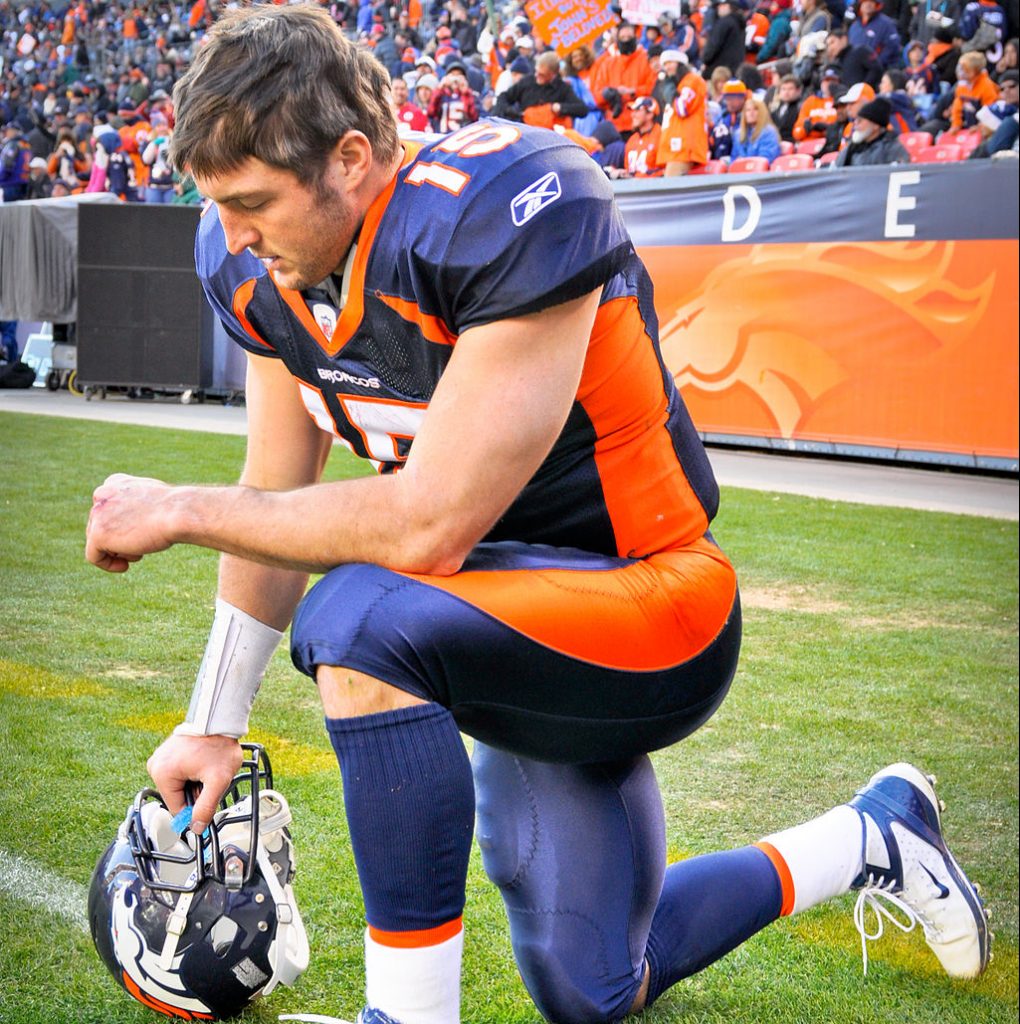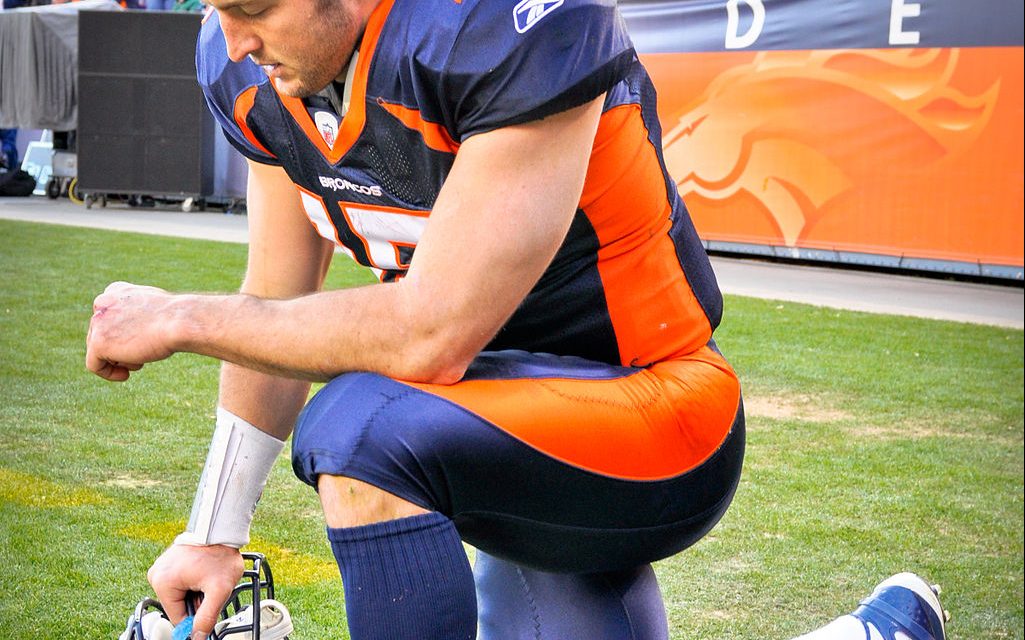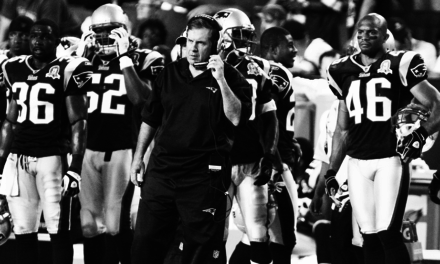After five years in minor league baseball, Tim Tebow has retired from the sport. On paper, the former Heisman Trophy winner’s baseball career is unimpressive, as Tebow was one of the worst hitters in the minor leagues in his last season. Despite this, his short-lived career surpassed many analysts’ expectations and drew record attendance numbers for minor league games. The media and public’s reaction to Tebow’s apparent retirement from professional sports reflects the tone of his entire career, which is both one of allure and repulsion, perfection and incompetency, and undeniable star power.
What would later be dubbed as “Tebowmania” began in 2006, as the then-college freshman was initially listed as a second-string quarterback for the University of Florida. Despite his initial position on the depth chart, Tebow and the Gators would go on to have an unforgettable season, upsetting The Ohio State University Buckeyes in the BCS national championship game. Following the graduation of Gators quarterback Chris Leak and Tebow’s promotion to starter, there was a great deal of both hype and skepticism surrounding the young quarterback’s future. No one, though, could have predicted how big a star Tebow would become, both on and off the field.
The 2007 season would be his breakout year in terms of athletics and celebrity status. He would become the first quarterback in college football history to run for 20 or more touchdowns and pass for 20 or more touchdowns in a single season in addition to being the first underclassman ever to win the Heisman Trophy. However, what began to define Tebow more than his near-perfect athletic achievements and successful 2008 and 2009 seasons was the cultural and societal fervor of his persona.
Whether it was his evangelical postgame speeches, Bible verses on his eye black or his iconic end zone prayer celebration dubbed “Tebowing,” he and his staunch devotion to his Christian faith drew great attention, praise and criticism.
1. During the 09 Championship game 92 million people Googled John 3:16 because Tebow had it written on his eye black. pic.twitter.com/MUMdAYzRW7
— Chris Rasmussen (@Rasmussen22) August 14, 2014
Tebow was by all accounts a cultural phenomenon, ascending beyond the sport and becoming a focal point for the religious divide within the U.S. at the time. Many praised Tebow for his unapologetic worship of Christianity and purity until marriage, subsequently seeing him as a needed role model in not only professional sports but society at large.
On the other hand, some viewed him as an embodiment of “muscular Christianity,” a tackier and less offensive form of the religion that emphasizes bicep curls just as much as Bible readings. As Tebow’s fame continued to grow, so did the hatred and spite toward the quarterback and his “self-righteous” evangelical tendencies. Tebow became such a divisive figure within the world of sports that the choice of whether or not to support him seemed to carry just as much weight as one’s stance on fiery political issues such as abortion or gun control.
As soon as Tebow was drafted by the Denver Broncos late in the first round of the 2010 NFL draft, many analysts and pundits doubted Tebow’s ability to find success in the NFL. After his first season, it would appear that the doubters were right as he started only a number of games, scoring only five touchdowns and throwing three interceptions.
The following season appeared to be no different, as Tebow was the backup quarterback on a team that was at the bottom of their division. The Broncos, after falling to 1-4, benched their starting quarterback in favor of Tebow, and what followed was one of the wildest and most perplexing seasons in the history of the NFL.
By every metric, it appeared that Denver’s season was doomed when Tebow took over: the Broncos were one of the league’s worst offenses and defenses, and Tebow was criticized for having the “ugliest” pass in the league. Despite the overwhelming odds, the Broncos’ schizophrenic playing and Tebow’s apparent lack of passing ability, the Broncos were able to go on a six-game winning streak and defeat the reigning Super Bowl contenders the Pittsburgh Steelers in the wild-card round of the playoffs, all while looking like a mess of a team.
Even if Denver played incompetently for the majority of a game, Tebow and the Broncos were always able to pull out a last-minute victory as if by divine intervention. It was a chaotic and almost poetic end to Tebow’s short-lived and polarizing NFL career, as he would never win another game as a starter.
With Tebow now several years removed from the end of his tumultuous NFL career and with his recent retirement from baseball, it is easier to reflect on how he was so much more than a football or baseball player. Tebow’s celebrity status peaked at a time when many Americans were facing hardship, still reeling from the Great Recession while experiencing a rise in political polarization.
Fans would often turn to sports as a distraction from these societal downturns only to witness a quarterback genuflecting in the end zone and delivering sermons in postgame press conferences. Regardless of Tebow’s intentions, he brought a new type of political dialogue and divide to football, forever blurring the lines between social-cultural issues and sports and further setting the tone for the future of the NFL and sports by and large.

Former NFL quarterback Tim Tebow takes a knee in a game in 2012. Tebow recently retired from the MLB. (Wikimedia Commons/Ed Clemente Photography)
Calvin Furbee (22C) is from Columbus, Ohio, majoring in business administration and environmental science. He is a member of Emory's swim and dive team. An Ohio State Buckeye fan since birth, Furbee is also interested in urban design and American history.





